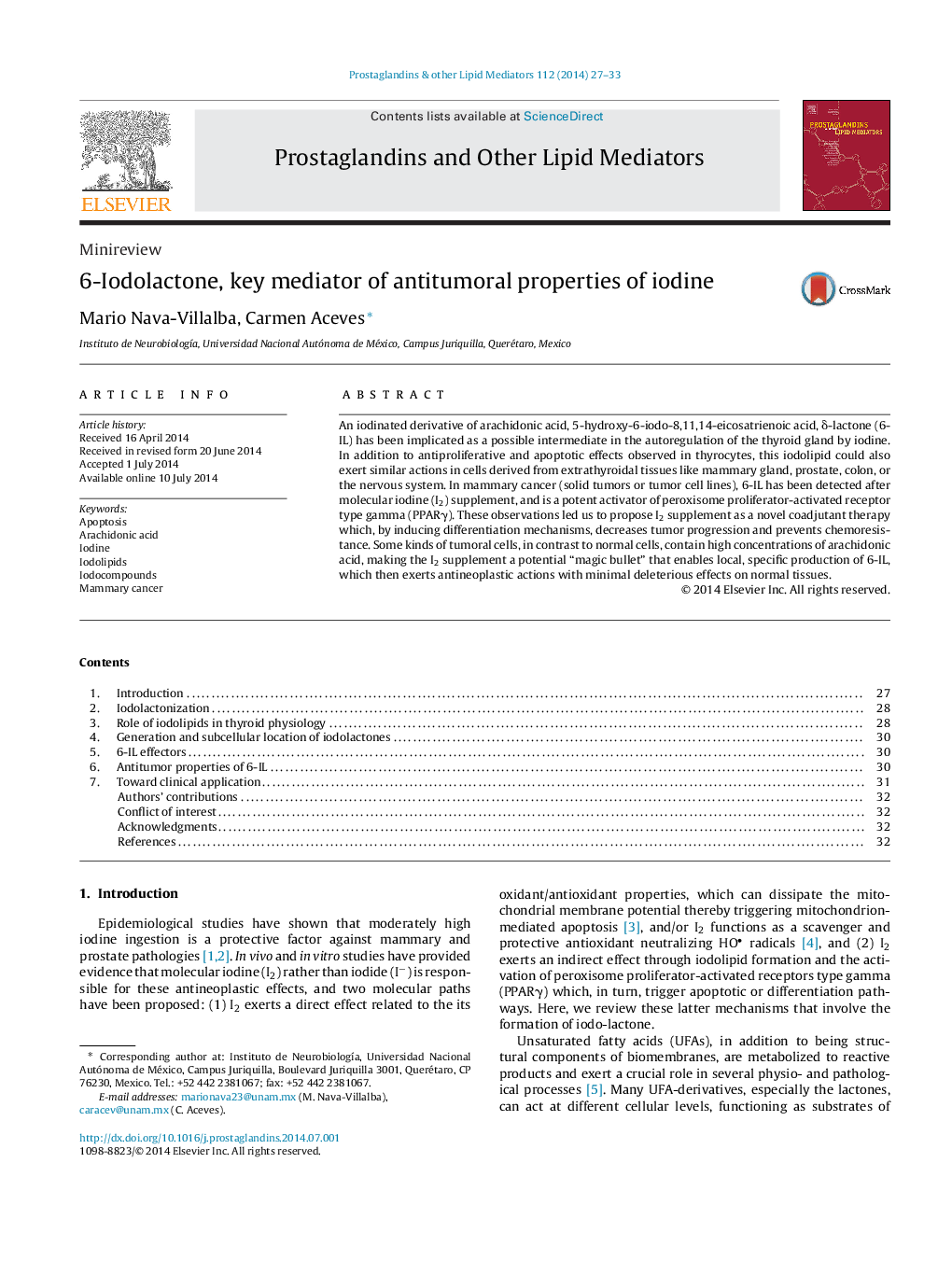| Article ID | Journal | Published Year | Pages | File Type |
|---|---|---|---|---|
| 2019605 | Prostaglandins & Other Lipid Mediators | 2014 | 7 Pages |
•A minireview of iodolipids in cancer context is proposed.•The antineoplastic mechanism of iodine involves 6-iodolactone as intermediate.•Iodine supplement in cancer treatment is proposed like a magic bullet.
An iodinated derivative of arachidonic acid, 5-hydroxy-6-iodo-8,11,14-eicosatrienoic acid, δ-lactone (6-IL) has been implicated as a possible intermediate in the autoregulation of the thyroid gland by iodine. In addition to antiproliferative and apoptotic effects observed in thyrocytes, this iodolipid could also exert similar actions in cells derived from extrathyroidal tissues like mammary gland, prostate, colon, or the nervous system. In mammary cancer (solid tumors or tumor cell lines), 6-IL has been detected after molecular iodine (I2) supplement, and is a potent activator of peroxisome proliferator-activated receptor type gamma (PPARγ). These observations led us to propose I2 supplement as a novel coadjutant therapy which, by inducing differentiation mechanisms, decreases tumor progression and prevents chemoresistance. Some kinds of tumoral cells, in contrast to normal cells, contain high concentrations of arachidonic acid, making the I2 supplement a potential “magic bullet” that enables local, specific production of 6-IL, which then exerts antineoplastic actions with minimal deleterious effects on normal tissues.
Graphical abstract6-Iodolactone is an iodinated derivative of arachidonic acid with antiproliferative and apoptotic effects on diverse cancer cell lines, and is the potential effector of molecular iodine.Figure optionsDownload full-size imageDownload as PowerPoint slide
